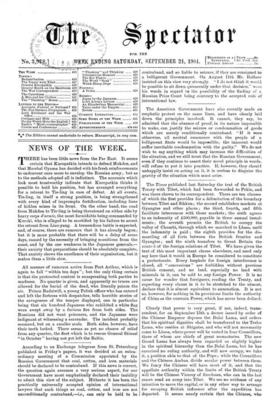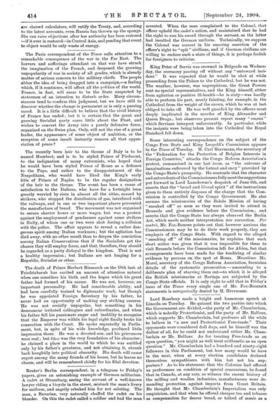Clearly that power is very great, if not, indeed, trans-
cendent, for on September 15th a decree issued by order of the Chinese Emperor deposes the Dalai Lama, and orders that his spiritual dignities shall be transferred to the Teshu Lama, who resides at Shigatse, and who will not necessarily come to Lhasa, where power will be vested in four Councillors, three of whom are chiefs of great monasteries. The new Grand Lama has always been regarded as slightly higher in the spiritual hierarchy than the Dalai Lama, but he has exercised no ruling authority, and will now occupy, we take it, a position akin to that of the Pope ; while the Councillors and the Chinese Amban divide secular power between them. We fancy the Chinese will have most of it, and that the appellate authority within the limits of the British Treaty will be the Chinese Viceroy of Szechuan, who can in the last resort send an army into Tibet. We see no evidenoe of any intention to move the capital, or in any other way to arrange for escaping British influence after the expedition has departed. It seems nearly certain that the Chinese, who are shrewd calculators, will ratify the Treaty, and, according to the latest accounts, even Russia has thrown up the sponge. She can raise objections after her authority, has been restored —if it ever is restored—in Central Asia, and pending that event to object would be only waste of energy.







































 Previous page
Previous page